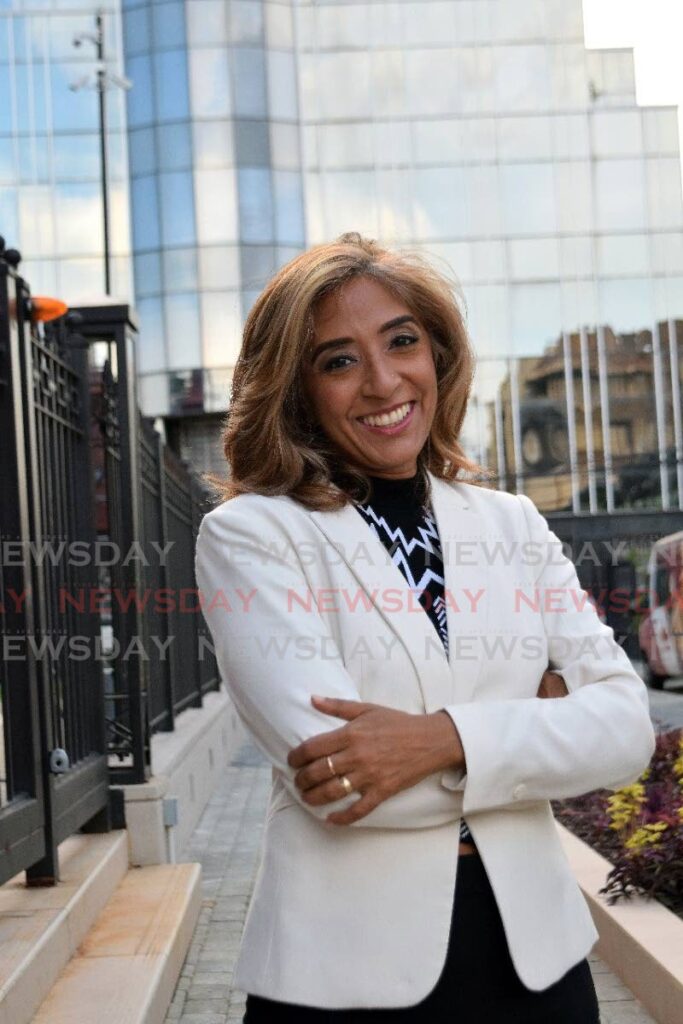Spiritual connections

DR GABRIELLE HOSEIN
IN LESS than a week, we have had Hinduism’s Maha Shivaratri on Saturday night, Carnival on Monday and Tuesday, with its grounding in transplanted African traditions, and now Ash Wednesday and the beginning of the Catholic period of Lent.
These are all spiritual traditions in one way or another, sometimes overlapping in surprising ways and sometimes focused on establishing their opposition.
As a people, we are blessed to have these and other belief systems available to us to understand more about each other and what it means to live together when we may not agree.
At Maha Shivarati, I sat at the Hindu Prachar Kendra, while Pandita Geeta Ji guided rites around the Shiva lingam. Not my family’s religion, but I thought it was beautiful, and felt lucky I could live in a country where anyone could sit and observe another’s sacred traditions.
Scan world news, this is a time when religions, whether Christianity, Hinduism or Islam, are being increasingly led by divisive politics, where our differences become a basis for excluding, putting down or fomenting mistrust and violence.
It’s growing globally, whether in India, Iran or the US, and those women and men are here too. They are in the churches that stop people from seeing their family if they don’t also belong.
They are in temples and mosques, where orthodoxy matters more than human beings, practising humility, and considering that, maybe, we take different paths to shared destinations. By contrast, I’m interested in those who are open to finding connection, rather than moral superiority.
I was intrigued to see Visham Bhimull’s linking of Shivaratri and Carnival. Both are events which are guided by a lunar calendar. However, Bhimull makes other connections, such as between Shiva, also known as Nataraj or Lord of Dance, and Carnival.
He also suggested that Shiva’s other identity as “Someshwar” is associated with intoxication, as are these two days. Finally, he pointed to co-occurrences with the colour blue as associated with Lord Shiva and with blue devils, who also carry tridents, and are horned like Shiva’s sacred bull, Nandi.
I’m not here getting into a debate about whether such associations are valid nor am I establishing whether or not I agree with these suggestions. I appreciate the space they offer for us to consider who we are in relation to each other, and perhaps see our differences and similarities in new ways, regardless of our race, creed or religion.
There are people who think that only Hindus can discuss Hinduism or only Muslims can discuss Islam or only Christians discuss Christianity. They are one step away from saying that only those who agree with them can speak at all. Beware.
I almost never agree with Archbishop Jason Gordon. Actually, put differently, I disagree with him (and the Catholic position) on a number of human rights and women’s rights issues, and I often despair that so many have to live by positions which I think are prejudiced, harmful and discriminatory.
However, I thought the archbishop’s comments about Carnival, as published in the Catholic News on January 26, were expressed in ways that created points of agreement even among those who may have very different values.
He described Carnival in terms of a multi-layered tapestry in which there was much deserving of celebration. He spoke of the art and discipline of pan, which gives us a glimpse of how we can forge a nation from the ground up in communities as pan sides do. He criticised fetes, but also described concern for the turn to simply importing costumes from China.
I disagreed with his final conclusion, that Carnival doesn’t have a morality of its own – which I think is apparent in mas-making as in pan, but we do agree that it holds up a mirror to society. I appreciated his nuanced considerations and a tone that was more than condemnatory. More than the religious, I have faith in those who can see that others may have different interpretations, practices or paths, but are willing to journey to common ground beyond only their own ideology.
As we begin a different season in our calendar, we have another opportunity in Lent, just as we have at sacred days on the Hindu and Muslim calendars, to invite others in, to reasonably dialogue about what we each bring, and to find words and images that provide examples to consider. We may not always agree, but surely we can see value in thinking about our connections to each other.
Diary of a mothering worker
Entry 497
motheringworker@gmail.com


Comments
"Spiritual connections"